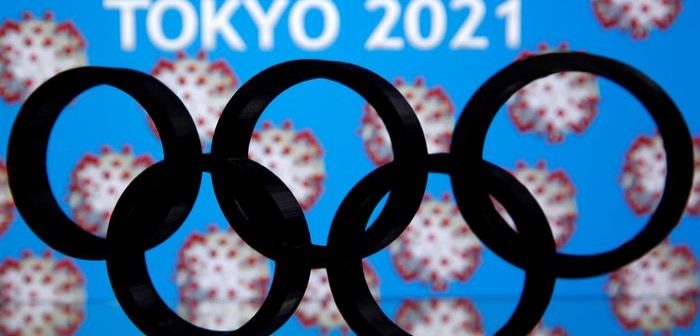American Caeleb Dressel has won his fifth gold medal in the Tokyo Games, finishing off one of the great performances in Olympic history.
Dressel swam the butterfly leg as the Americans set a world record in the 4×100-meter medley relay with a time of 3 min 26.78 sec. That eclipses the mark of 3:27.28 they set at the 2009 Rome world championships in rubberized suits.
Ryan Murphy, Michael Andrew, and Zach Apple joined Dressel on the winning team. That ensured the Americans closed out the swimming competition with another gold in a race they’ve never lost at the Olympics.
Earlier in the session, Dressel won the 50 freestyle for his third individual title of the games, cruising to a relatively easy win in the frenetic dash from one end of the pool to the other and touching in an Olympic record of 21.07 seconds.
When the 24-year-old Floridian saw his time and, more important, the “1” beside his name, he splashed the water and flexed his bulging arms.
Dressel swept the 50 and 100 freestyle races, to along with a world-record triumph in the 100 butterfly and a leg on the winning US team in the 4×100 free relay. And he still had one more chance to make it five medals on the final day of swimming at the Tokyo Aquatics Centre.
A few minutes after Dressel climbed from the pool, Australia’s Emma McKeon completed her own freestyle sweep. She touched in 23.81 seconds to take the women’s 50 free, adding to her victory in the 100 and her sixth medal overall at these games.
In keeping with the theme of the day, Bobby Finke pulled off his own sweep in the two longest freestyle races.
With another strong finishing kick, Finke became the first American man in 37 years to win the 1,500 freestyle. He added to his victory in the 800 free, a new men’s event at these games.
In the men’s 50, France’s Florent Manaudou finished behind Dressel to repeat as the Olympic silver medalist in 21.55, while Brazil’s Bruno Fratus claimed the bronze in 21.57 – edging American Michael Andrew for the final spot on the podium.
In the ready room shortly before the race, Dressel paced back and forth anxiously while most of the other swimmers relaxed in their chairs.
Then, he was cool as can be in swimming’s most furious lap. Popping up from the water with the lead, as is always the case with his impeccable underwater technique, Dressel was clearly in front all the way in a race that is often too close to call.
Dressel had one more event – the 4×100 medley relay, a race the United States has never lost at the Olympics. He was swimming the butterfly leg in a race that caps nine days of swimming competition at a 15,000-seat that, sadly, was largely empty throughout the meet.
If Dressel claims a fifth victory, he would join Americans Michael Phelps, Mark Spitz, and Matt Biondi, as well as East Germany’s Kristin Otto, as the only swimmers to win as many as five golds at a single Olympics. Phelps did it three times.
McKeon also has a shot at history after winning with an Olympic-record time of 23.81.
The silver went to Sweden’s Sarah Sjöström in 24.07, while defending Olympic champion Pernille Blume of Denmark settled for bronze this time in 24.21.
American Abbey Weitzeil finished last in the eight-woman field.
McKeon has a chance to earn her seventh medal in the 4×100 medley relay. No female swimmer has ever captured that many at a single game.
Just as he did in winning the 800 free, Finke stayed close throughout the 30-lap race and turned on the speed at the end. He touched in 14 minutes, 39.65 seconds.
Ukraine’s Mykhailo Romanchuk took the silver in 14:40.66, while the bronze went to Germany’s Florian Wellbrock in 14:40.91. Italy’s Gregorio Paltrinieri faded to fourth in 14:45.01.
The top four were close nearly the entire race, often separated by less than a second. But that was right where Finke needed to be. After his closing lap in the 800, he knew he had the speed at the end to beat everyone else.
Finke has been perhaps the biggest American surprise at the pool. Relatively unknown before the US trials, he became the first American male to win the grueling event since Mike O’Brien at the 1984 Los Angeles Games. ♦
The story first appeared in The Guardian



